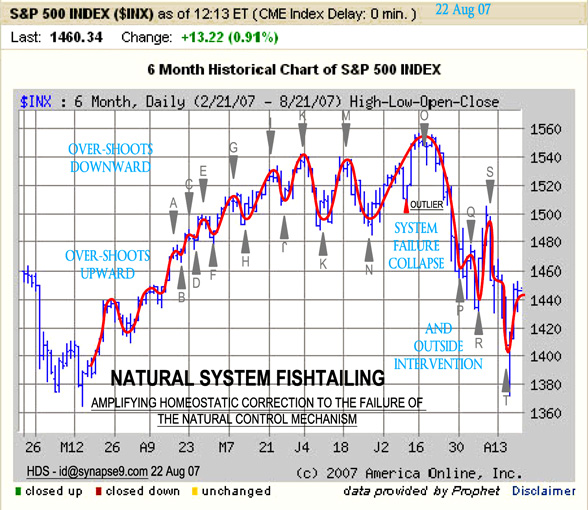Yea, most people think it’s a problem of attitude, but there are great examples of where that’s clearly not the case. The environmental movement, for example, makes the same mistake time after time of treating niche opportunities as unlimited resources. The important part is not to say they have a ‘bad attitude’. The error is not one of attitude. The important thing to note it that it’s the exact same error they are trying to correct.
It’s error that the business and finance interests are making in massively misjudging the limits of the earth’s easy resources. The greens like the developers tend to think that every resource we have not yet exhausted is unlimited, like wind and solar and all that. That insight is the useful and helpful lesson of ethanol, that it was a good niche opportunity thought of as an unlimited resource up until it triggered the world food crisis. What we’re dealing with is a major conceptual misunderstanding of the problem.
If you don’t want to “plan for failure” as you say, then you should pull yourself up short and figure out why nearly everyone with that attitude actually is planning for failure. Almost no one thinks things through. Almost all planning is done to just push the problem a little ways ahead, hoping it will go away. That worked when we had not hit the limits of the earth.
Now just pushing the problem ahead a bit just pushes it to where it will be worse when we get to it again. In order to think things through we need to understand them from beginning to end, ¸¸¸.•´ ¯ `•.¸¸¸ , and that’ll teach you how nature starts everything with explosions of creativity to see if they will learn how to stabilize, or lets them collapse of their own feeble accord if they don’t.
The real solutions to our two main uncontrolled growth problems, population and wealth, are both stubbornly in conflict with our self-images of what ‘good’ means, the stuff we cling to in our minds. Those ‘functional fixations’ throw us into deep conflict with a changing world. To me the real solution to both is *not* getting the right ideas into our minds.
It’s to learn a way to see *through* our ideas so we can watch the real world, see them in overlay. Otherwise we only look *at* our ideas and let them hide the world from us. If we see both we don’t have to give up the things that are precious to us, including our attitudes, and can successfully navigate a place that we’ve mostly lost contact with too.
Does that make any sense?
Best,
Phil Henshaw
———-
Hi Phil,
What differentiates humans from animals is our capacity to conceptualise in abstract terms and to plan for the future, and then to act on those plans with a view to realising them. To me the problem is one of “attitude”. My personal experience is that our plans are self fulfilling. Winners plan to succeed, and losers plan to fail. I am personally not predisposed to plan for failure. To me that is not a constructive use of my time and energy. My personal predisposition is to want to co-operate with my fellow humans with the objective of furthering our mutual interests. To me there is no purpose to be served in contemplating the end of the world. That is not the attitude of a healthy mind.
Kind Regards,
Brian Bloom

